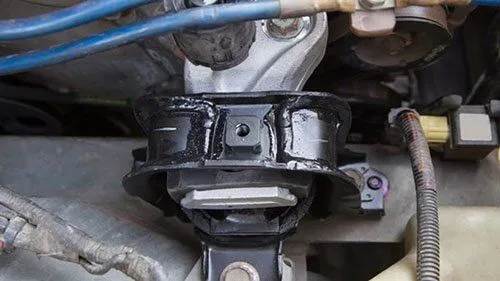In demanding industrial environments, every component plays a critical role in the performance, longevity, and reliability of equipment. One such often-overlooked component is the engine mount. Far beyond simply securing an engine in place, mounts are responsible for managing vibration, isolating shock, and maintaining alignment—all of which directly affect system performance and safety.
While off-the-shelf mounts can serve many applications, industrial operations often require custom solutions tailored to specific equipment needs. From size constraints and load requirements to material selection and environmental conditions, custom engine mount solutions are essential to ensuring optimal performance in unique operational settings.
Why Custom Engine Mounts Matter in Industrial Settings
Standard mounts are manufactured to suit general-use cases and are typically designed for average load and vibration conditions. However, industrial machinery is rarely “average.” Whether it’s mining equipment subjected to constant impact, generators operating at high RPMs, or precision machines requiring ultra-low vibration, a one-size-fits-all approach often leads to inefficiency and premature component failure.
Custom mounts allow engineers to match the mechanical properties of the mount with the operational characteristics of the equipment. This precision fit results in improved vibration isolation, better load distribution, enhanced alignment, and overall greater system integrity.
Key Factors in Custom Engine Mount Design
Several critical variables must be considered when designing or selecting a custom engine mount for industrial equipment. Each of these factors contributes to the reliability and functionality of the final solution:
1. Load Capacity and Distribution
The mount must be capable of supporting the engine’s weight, as well as absorbing dynamic loads generated during operation. Understanding both static and dynamic loads is crucial for designing mounts that won’t deform or fail under pressure.
2. Vibration Frequency and Damping Needs
Different engines generate different vibration profiles based on their operating speed and load conditions. A mount that is too stiff may transmit vibrations into the chassis, while one that’s too soft may not provide adequate support. The damping characteristics must be finely tuned to the application.
3. Operating Environment
Custom mounts need to account for environmental factors such as temperature extremes, exposure to chemicals or oil, UV exposure, and the presence of water or abrasive materials. The right choice of material—whether rubber, polyurethane, or composite—can dramatically improve the mount’s durability.
4. Mount Geometry and Space Constraints
Industrial equipment often comes with unique space limitations or installation geometries. Custom engine mounts can be designed to fit into tight spaces, accommodate unusual load angles, or attach to non-standard mounting points.
5. Alignment and Torsional Control
Proper engine alignment reduces wear on connected systems such as driveshafts and couplings. Custom mounts may also incorporate features to control torsional movement, especially in high-torque applications like industrial compressors or hydraulic systems.
Benefits of Custom Engine Mount Solutions
Adopting a tailored approach to engine mounting in industrial equipment offers a wide range of benefits:
- Improved Performance: Custom mounts optimize vibration control, leading to smoother operation and reduced wear on surrounding components.
- Increased Longevity: Matching mount design to operating conditions helps prevent premature failure and extends the life of both the mount and connected systems.
- Reduced Downtime: Reliable mounts reduce maintenance frequency and unscheduled outages, keeping equipment running longer with fewer disruptions.
- Enhanced Safety: Secure, stable engine mounting minimizes risk of misalignment or breakage, protecting both operators and machinery.
- Greater Flexibility: Custom solutions accommodate evolving design requirements and equipment modifications, making them a future-proof investment.
Applications That Demand Custom Mounts
Industries such as oil and gas, marine, mining, power generation, and manufacturing frequently encounter conditions that necessitate custom mounts. Common applications include:
- Heavy-duty diesel generators
- Industrial pumps and compressors
- Marine propulsion engines
- Construction and earth-moving equipment
- Agricultural machinery
- Mobile industrial platforms
In each case, a tailored mount ensures that performance requirements are met without compromising structural stability or longevity.
Working With the Right Supplier
Collaborating with an experienced supplier who understands both the engineering and environmental demands of industrial operations is key to successful implementation. Reputable vendors provide not just the mounts themselves, but also consultation, prototyping, and testing support to ensure that the final product meets the most stringent standards.
Engineers and maintenance teams should look for providers with a wide range of material options, customization capabilities, and a track record of successful industrial installations.
Conclusion
In industrial equipment applications, the value of a custom engine mount goes far beyond holding the engine in place. It is a strategic component that contributes directly to operational efficiency, equipment longevity, and workplace safety.
By investing in custom engine mount solutions that are engineered for specific equipment and environmental conditions, businesses can avoid costly downtime, reduce maintenance demands, and achieve greater confidence in their machinery’s performance over the long term.


